Search Results
Showing results 1 to 20 of 27
Growing Plants: Track Their Growth
Source Institutions
In this activity, learners will be working with predictions with a time frame of one week, or longer. Start by planting seedlings.

Plant Parts You Eat
Source Institutions
In this food science activity, learners observe different plant-originated foods.
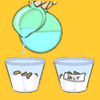
Salt, Soil and Seeds
Source Institutions
Discover how the salt in soil affects plant growth with a few seeds, some cotton, and salt. In this hands-on activity, you will plant seeds in 2 different kinds of soil, containing more or less salt.

Mighty Seeds
Source Institutions
In this biology experiment, learners plant soybean seeds in plaster of Paris, witnessing firsthand the mighty power and ability of plants to grow in adverse conditions.

Glove Gardens
Source Institutions
In this activity, learners create a garden in a disposable glove. They learn about the conditions necessary to make the seeds sprout and actively participate in caring for their plants.

Squash Dissection
Source Institutions
In this activity, learners will dissect a pumpkin or winter squash to learn the parts of the plant. This activity gets your learner hands on with every part of the plant and will be messy.
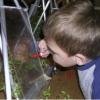
Drawing From Nature
Source Institutions
In this activity, learners draw natural objects to explore the details, differences, and similarities of natural objects.

Film Canister Farming
Source Institutions
In this hands-on botany activity, learners sprout vegetables in film canisters.
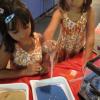
Sand, Plants and Pants
Source Institutions
In this activity, learners explore how the application of nano-sized particles or coatings can change a bigger material’s properties.

Starting Your Container Garden
Source Institutions
This guide outlines how to plant a garden even if you don't have a yard!
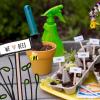
Egg Carton Nursery
Source Institutions
In this activity, young learners will make their own flower seed nursery in an egg carton.
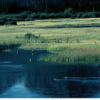
Wetlands
Source Institutions
Learners create a model of a wetland to observe how it absorbs and filters water from the environment.
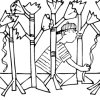
Rain Forest in Your Room
Source Institutions
This activity (on pages 19-24) introduces learners to the rain forest's layers—emergent, canopy, understory, and forest floor—and has learners make paper lianas (vines that live attached to trees) and
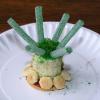
Build a Coral Polyp
Source Institutions
In this activity, learners build one or more edible coral polyps and place them together to form a colony.

Estuaries
Source Institutions
An estuary is a body of water that is created when freshwater from rivers and streams flows into the saltwater of an ocean.

Design a Seed
Source Institutions
In this activity, learners will design a seed and test how it travels. Learners will use the Engineering Design Process to create a seed which can move from place to place.

Vegetable Revival
Source Institutions
In this activity, learners use food scraps from the kitchen to grow new vegetables.

A Swell Activity with Beans
Source Institutions
In this combination chemistry and physics activity, learners explore water absorption in dried beans or peas and learn how this affects their physical properties.
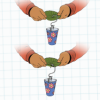
Breaking Point
Source Institutions
In this activity, learners build penetrometers to test leaf toughness. Biologists measure leaf toughness to study the feeding preferences of insects and bugs.
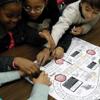
Endangered!
Source Institutions
While playing a game, learners discover how the Endangered Species Act works in the United States. Learners move along a game board by answering questions correctly.
